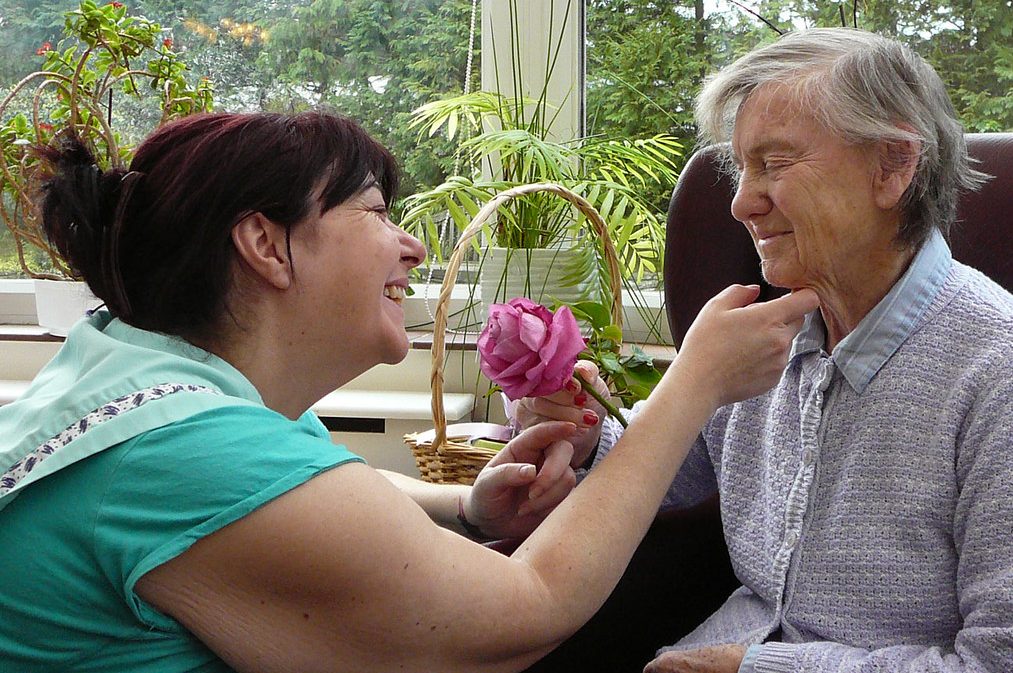
Evolving our duty of care
Sometime in the next few months we will begin to say goodbye to Deprivation of Liberty Safeguards (DoLS) and introduce their successor, Liberty Protection Safeguards (LPS).
LPS is a scheme set up by an amendment to the Mental Capacity Act (MCA) 2005. It might be worth reminding ourselves why we have these provisions under the MCA.
Under law, you can deprive someone of their liberty, in certain circumstances, when authorised health and care professionals, in consultation with a person’s family and/or advocates, agree that person lacks capacity to make decisions in their best interests.
No one providing care and support wants to deprive people of their liberty; the whole point is to empower people to do their own thing. But sometimes, it might need to be done and it’s a weighty responsibility on the shoulders of those who have to administer it.
 New name, same commitment to protect
New name, same commitment to protect
DoLS have always ensured people who cannot consent to their care arrangements in a care home or hospital are protected if those arrangements deprive them of their liberty.
LPS have the same goals, but with some streamlining to make the system run a little more smoothly.
It is worth mentioning that DoLS will run alongside LPS for a year after implementation to ease the transition of existing cases.
Here are three significant features of LPS:
-
They do apply to 16-year olds upwards, so need to be understood by a range of children’s services.
-
LPS have to be authorised in advance by a 'responsible body': a hospital manager, a clinical commissioning group and, in the case of deprivations taking place in a care home or the community, the local authority.
-
For the responsible body to authorise any deprivation of liberty, it needs to be clear that the person: lacks the capacity to consent to care arrangements; that the person has a mental disorder; and that the arrangements are necessary to prevent harm and are proportionate to the likelihood and seriousness of that harm.

Safeguarding at all times, in all places
These safeguards will include regular reviews by the responsible body; and the right to an appropriate person or an Independent Mental Capacity Advocate to represent a person and to protect their interests.
The change to legislation also broadens the scope to treat people, and deprive them of their liberty, in a medical emergency, without gaining prior authorisation.
It’s important to say that the five principles of the MCA 2005 remain in place; from a person being assumed to have capacity unless it is established that they don’t; to a person not being treated as unable to make a decision merely because they make an unwise decision.
The changes are coming, and the debate around finding the right balance between protecting people and making the process manageable will continue until they bed in. So sign up for more guidance on our site and our bulletin as the new provisions approach.
Only by staying well-informed can we make the changes a success and ensure people whose liberty is compromised receive the best possible support.
11 comments
Comment by Alan posted on
"They don’t apply to 16-year olds upwards, so need to be understood by a range of children’s services."
Is this correct?
Comment by Mark Osterloh posted on
Apologies - a typo which has just been corrected! Thanks for the spot.
Mark
Social Care News Blog editor
Comment by Cathryn Meredith posted on
Hi, I think there is an erroneous 'don't in your first box, LPS DO apply from 16 onwards.
Comment by Mark Osterloh posted on
This was corrected shortly after posting last week. Thanks for flagging!
Comment by Charlie posted on
Funding, funding, funding....
There seem to be glaring gaps in how LPS is proposed to be funded - based on a series of 'interesting' assumptions. From an underestimate in training costs, ignoring the real costs of obtaining evidence of a mental disorder (assumed to be zero in the New age of LPS), to overestimating the simplicity of the assessment process and thereby the true costs of the assessment process, an inexplicably low assumption of the expected number of appeals to the COP, and an unexplained figure for numbers of "community" based cases of deprivation of liberty which seems likely to be a massive underestimate of actual numbers. There is a real risk of LPS providing a weakened set of safeguards, particularly with the option of 3 year renewals reducing any long term scrutiny to almost cursory levels. All rather worrying......
Comment by Peter posted on
Hello Charlie,
You are correct the final impact assessment to the bill, published Jan 2019, is beyond naive and also focused on local authority activity and knowledge outside the current dols system (which is a stretch in itself). There is no consideration for the impact on CCG staff adapting their assessments or in some examples completing new documents for an area that is completely new. Then you consider trusts and the volume and pace of those, involvement of children’s services, training numbers and advocacy contracts and arrangements.
Comment by The mother posted on
Nobody wants to deprive people of their liberty? Actually some people do! The appropriate use of the system relies on the person operating it. The person operating might be wonderful and kind but might be a power hungry stalker! The MCA is abused to imprison and restrict for the sole benefit of the abuser in such circumstances but this is supported because they are the professional who apparently always knows best - even to the extent of those who do not lack capacity being labelled as lacking capacity in order to facilitate this. Individuals and families destroyed for the power trips of people in the wrong job!
Comment by Miss C posted on
For people who have undergone the Dols training , will they then need to the LPS training when it comes in form , or could the wait till its renewal after a year ?
Comment by Peter posted on
Hello
I would say that if they are just doing the assessments there is no requirement (as yet) for training on this as it is assumed all front line staff can consider the areas (regulations may be more decisive). If they are a BIA they should have this general knowledge. Although I would want to offer to make sure it is considered and recorded correctly.
In relation to authorisation preauthorisation review I imagine will need training much like signatories do now, although again regulations should clarify who and what, with code of practice detailing what the authorisation record should look like. If an AMCP is needed this will need to trained before they can act as it will be a new qualified role and different to a BIA, although fast trackable.
The answer is really based on how many DoLs you can authorise before LPS comes into action which will continue to be legal in the transition year, but any changes made or reviews before it’s expiration will need to be done under LPS, and will need appropriate staff.
Comment by Gill posted on
The change to legislation also broadens the scope to treat people, and deprive them of their liberty, in a medical emergency, without gaining prior authorisation
This statement it self is frightening to me. Depriving people of there liberty can never be acceptable on so many levels. Advocacy all the way
Comment by Maxwell Oosman posted on
Cannot wait for LPS to start